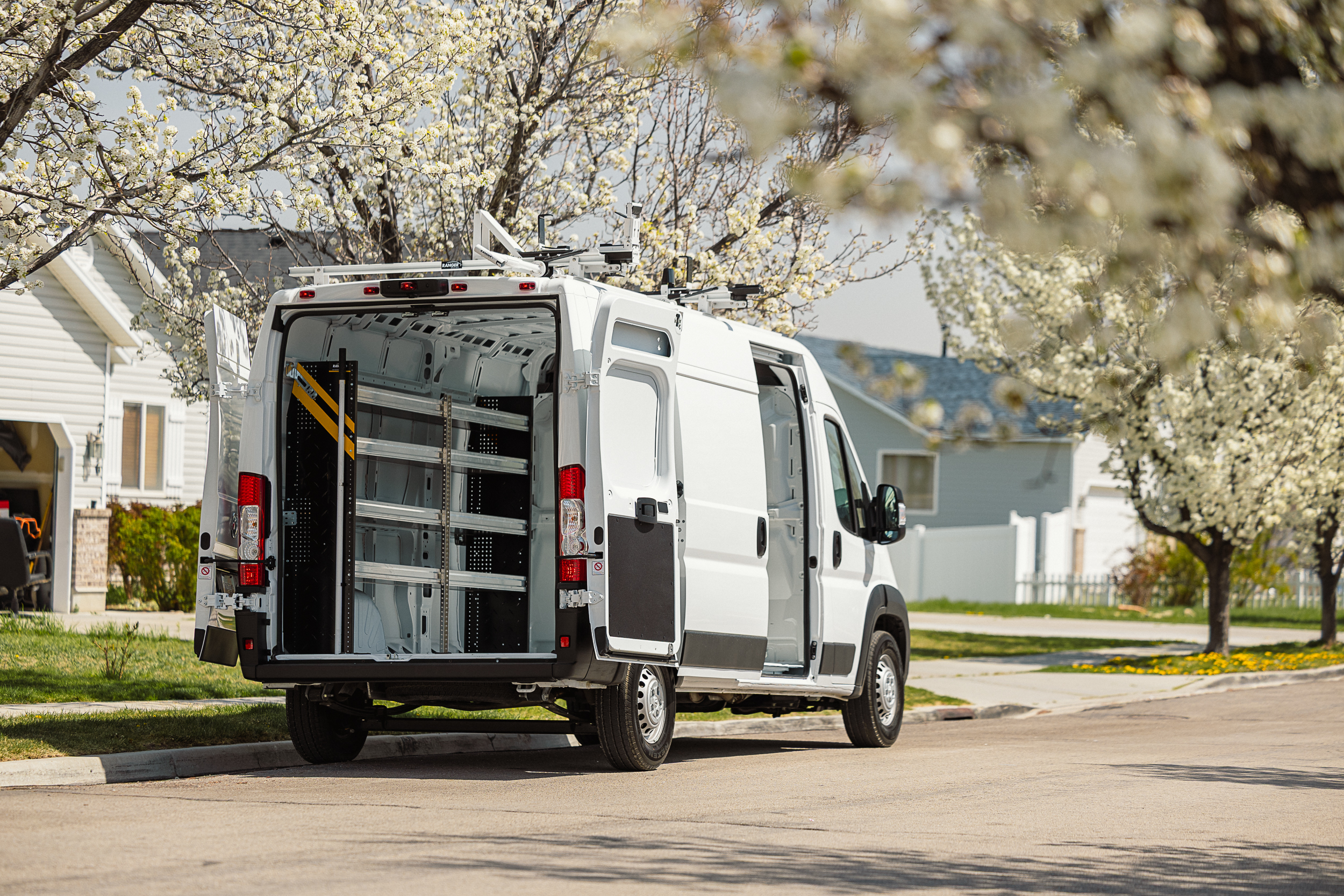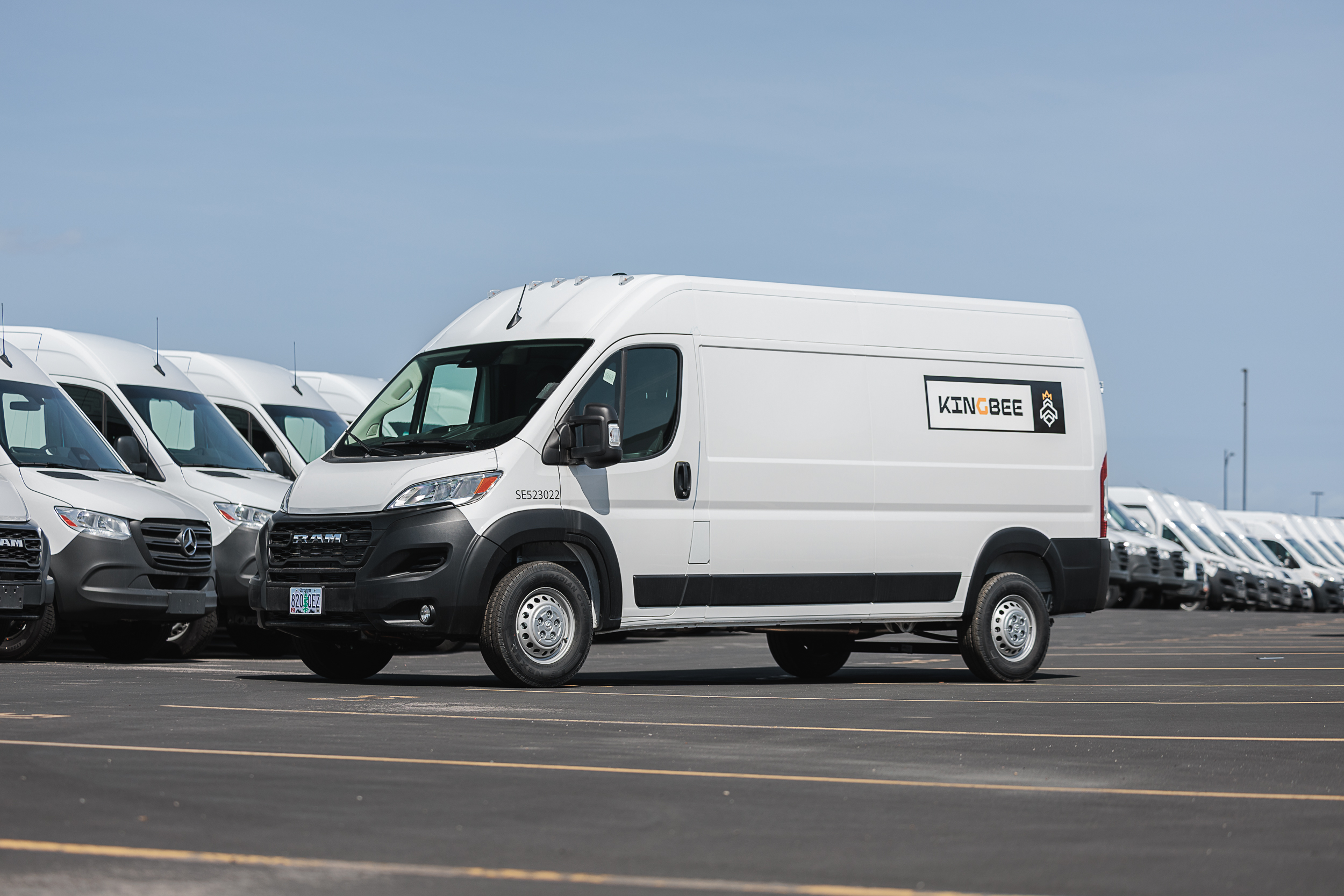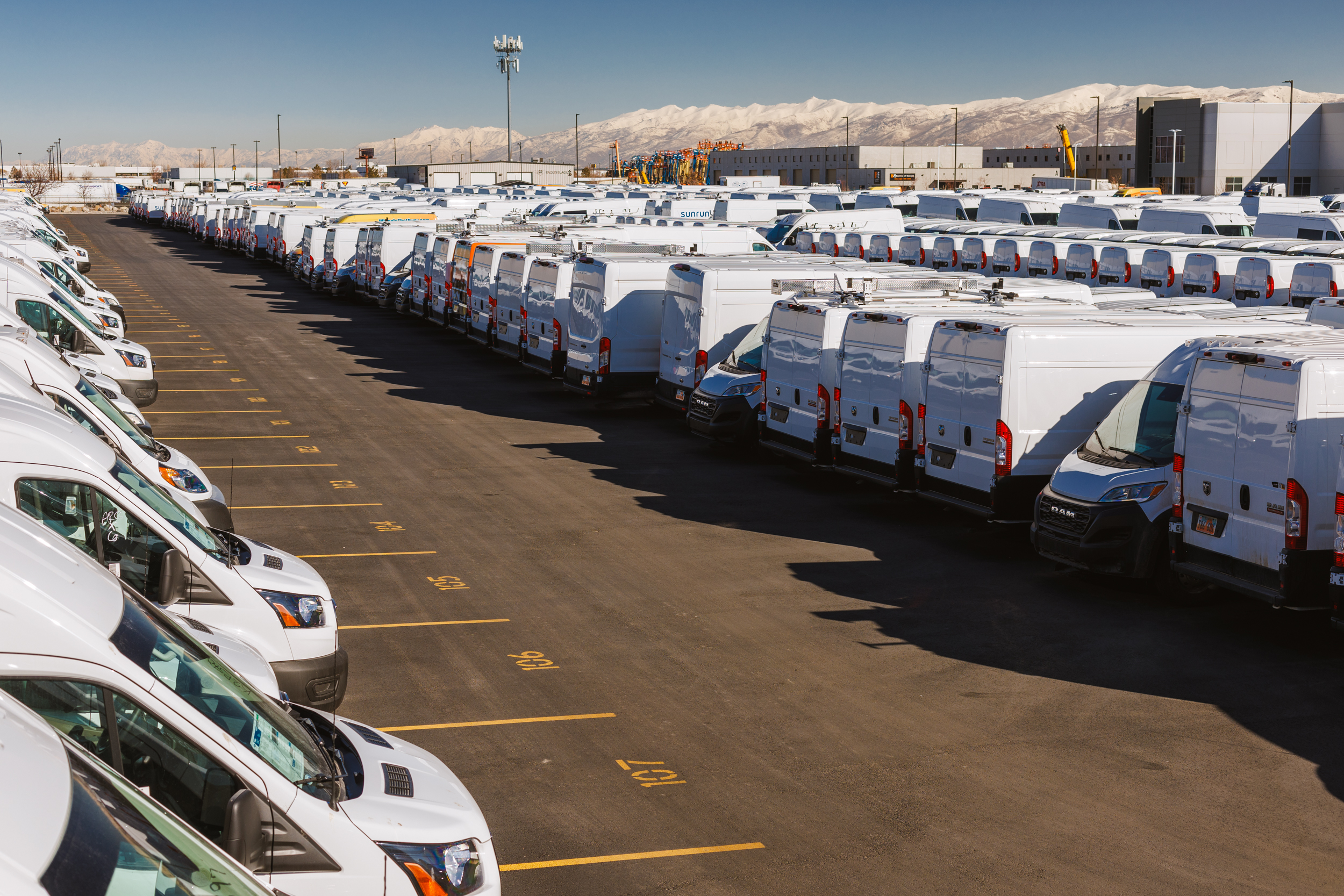It’s sunny times for solar power. Installations have fully rebounded from the Covid slump, with 20.2 gigawatts of total capacity installed in 2022, compared to the 13 gigawatts at the close of 2019. (To put that into perspective, one gigawatt is equivalent to two coal-fired power plants and contains enough energy to power 750,000 homes.) Over the next 10 years, that number may quadruple, and that’s not even taking into consideration the further impact of incentives launched by the Biden administration.
Three years of supply issues have sent solar fleets scrambling to find and finance enough vehicles to maintain their growth. OEMs are giving priority to enterprise fleets and letting the rest of the nation’s fleets fend for themselves. As supply issues ease, and allocation becomes more democratized, solar fleets are still finding themselves without enough vehicles to keep up with business.
More Solar Installations Means More Solar Installers
To avoid missing out on revenue, solar companies need new vehicles quickly. The most efficient fleets seem to have a higher percentage of leased vehicles than purchased. Leasing allows for an easier replacement cycle, since fleet managers tend to hold onto purchased vehicles for longer than they should.
But what if you need vehicles quickly but only for six months, like during peak season or for a certain project? Or extra vehicles while you wait for other vehicles to arrive from the dealership? Maybe you want to test a new technology to see how it performs before making a major investment.
Rent: The Dirtiest Word in Fleet
Since the dawn of fleets, renting has been considered the ugly stepchild of vehicle acquisition, carrying with it the reputation of being crappy and cheap. Like a saggy pajama shirt. Though, these days you could put an ear to the wind and hear a solar CFO wailing that they need to free up capital so they can leverage debt for their scaling business.
Solar fleets are growing rapidly, and one huge advantage of renting is that it doesn’t add to your balance sheet. Solar companies looking for growth can expand their borrowing capacity by renting instead of purchasing some of their fleet vehicles.
Another advantage of renting is the convenience it offers. Rental vehicles are readily available, meaning no more extensive paperwork and negotiations associated with purchasing or leasing. You can rent vehicles for a peak season and return them when the job is done. When vehicles aren’t available through traditional avenues, or when cashflow is tight, Kingbee provides vans right away. In 3-4 weeks, you could have new vans that are wrapped with your company’s branding and upfitted with shelves and racks, all without adding to the balance sheet.
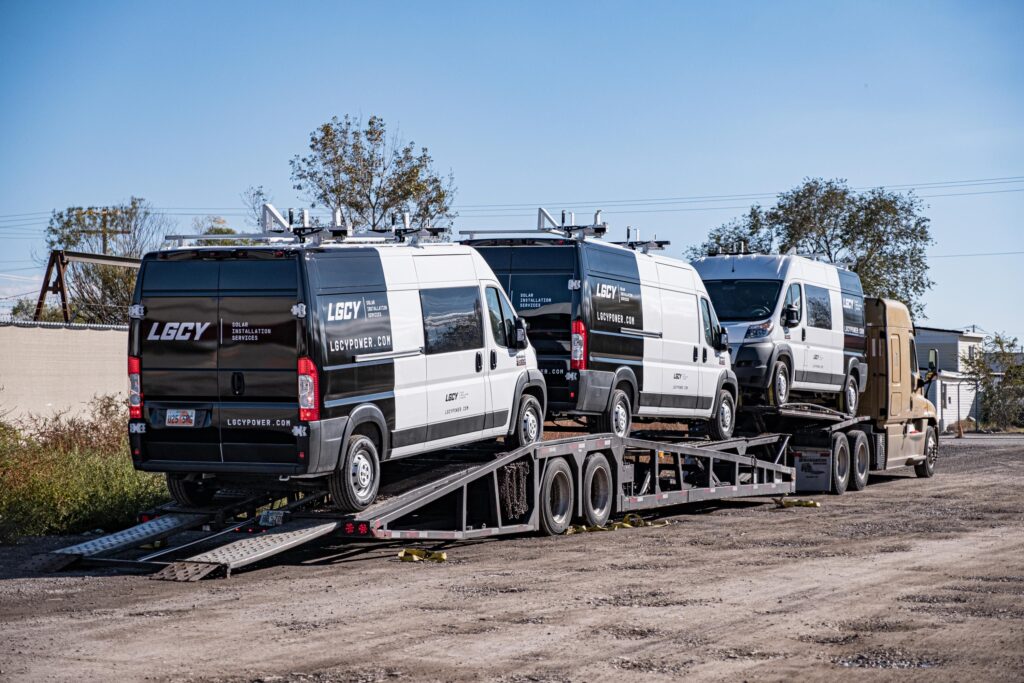
More Solar Installers Means More Vehicles
Let’s say a vehicle makes you $1500 a day (a conservative estimate). If you don’t order enough vehicles, the opportunity costs can be massive. Order too many, and you’ve made a huge mistake because now you have to pay for unused vehicles that aren’t generating revenue.
Scalability is essential for any growing business, and solar companies need a flexible solution to ease the burden of vehicle acquisition. Something that lets them ‘try out’ a certain number of vehicles before they lease or purchase. A kind of fluid contract that lets them quickly scale with new vehicles, then immediately return the ones they no longer want to use.
The timeline of growth for your company factors into scalability as well. At first you may only need a few cargo van rentals to meet the needs of your customers. As your client pool expands, however, and you need new vehicles, van rentals will keep you above water until the dealership fulfills your order 6-9 months from now.
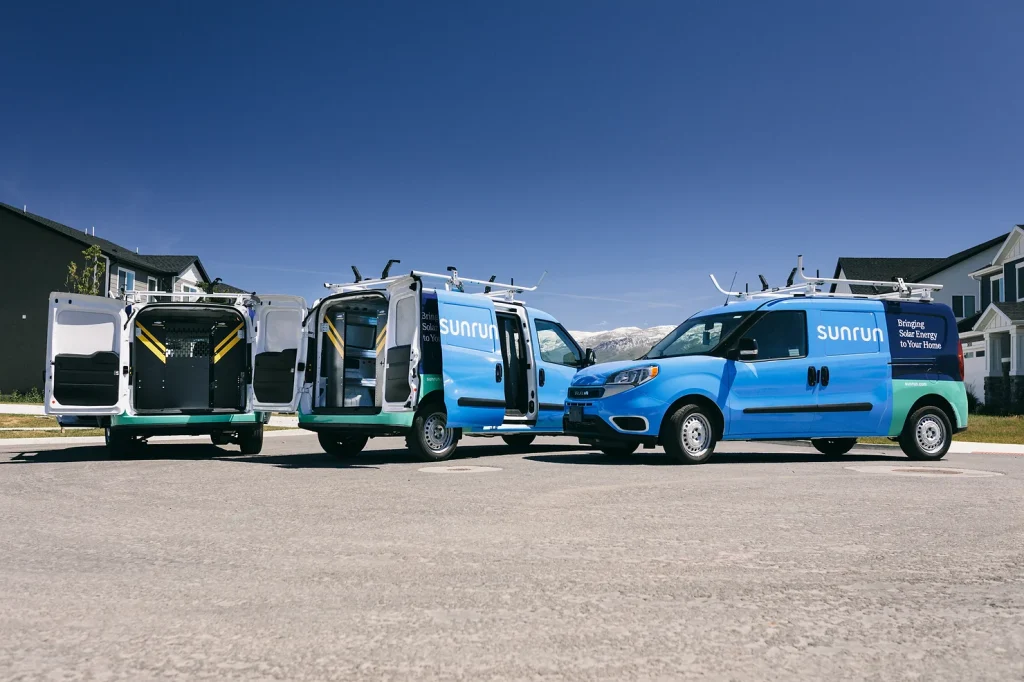
Why Sunrun Ran With Rentals
Sunrun is the largest solar installer in the US, and they source their fleet through a combination of leasing, purchasing, and renting. They previously rented vans from a well-known rental company, until they recognized the total value they could receive from Kingbee.
Other rental companies vary their rates depending on region and seasonality. Plus their vans don’t come upfitted with shelves and ladder racks, or wrapped in your company’s unique branding. Even something as simple as being able to organize and keep track of small parts while traveling to different job sites will make installers so much more productive. Not to mention the branded wraps that turn each of your vans into advertisements to show surrounding drivers what your company offers.
“Being able to carry an extension ladder is a crucial requirement in our line of work and something we’ve struggled with when needing to rent vehicles, especially cargo vans, in the past. Kingbee’s product adds a lot of flexibility to our operations and helps us be more productive” – Nick Pockrus, Sr. Project Manager
The difference between a bare van and Kingbee’s work-ready rentals was worth the added value. To this day, Kingbee continues to provide van rentals to Sunrun on a rolling basis.
Kingbee Helps Solar Companies Win
Solar fleet managers spend their days fighting the good fight of proper fleet forecasting. Kingbee helps them 1) acquire new vehicles quickly, and 2) maintain their cycles.
When delivery times are unpredictable, a product that’s immediate and work-ready can help free up capital that’s needed in other areas. Drop us a line to see how Kingbee rentals can help your fleet save costs and boost revenue!
